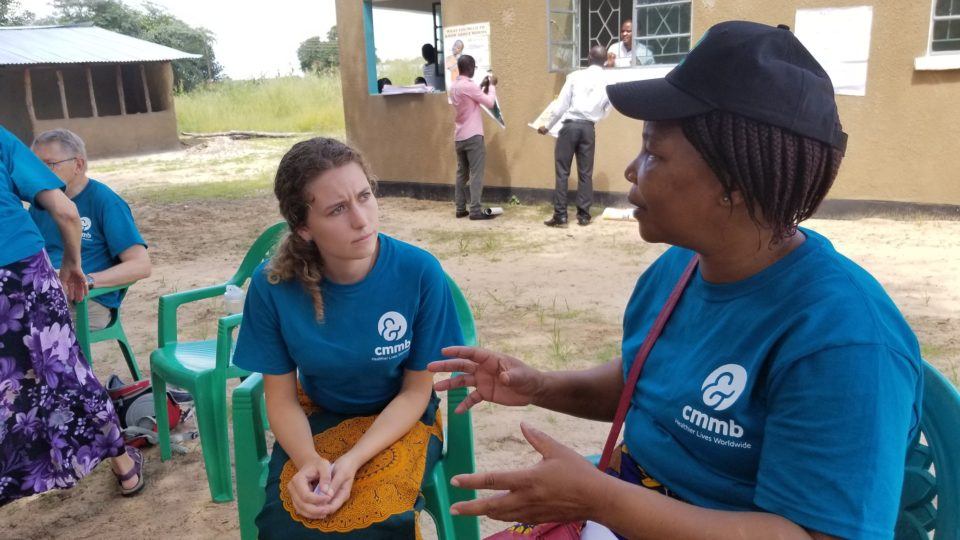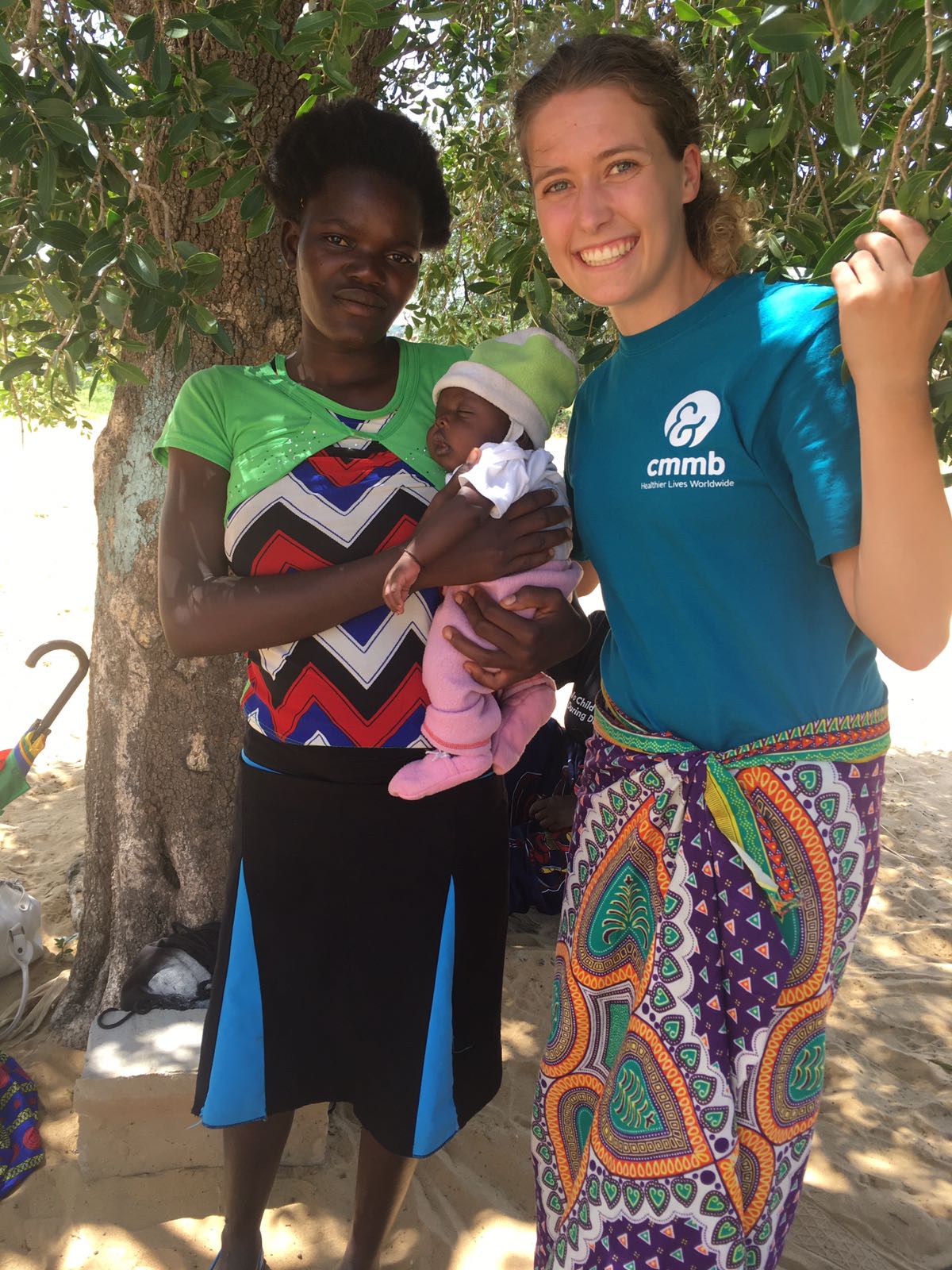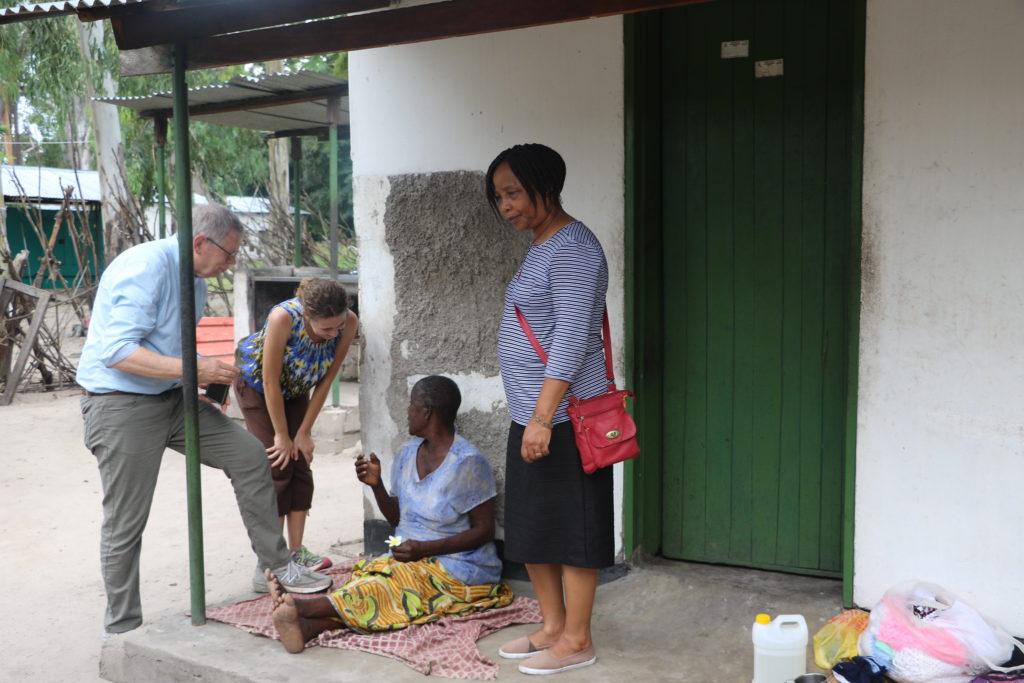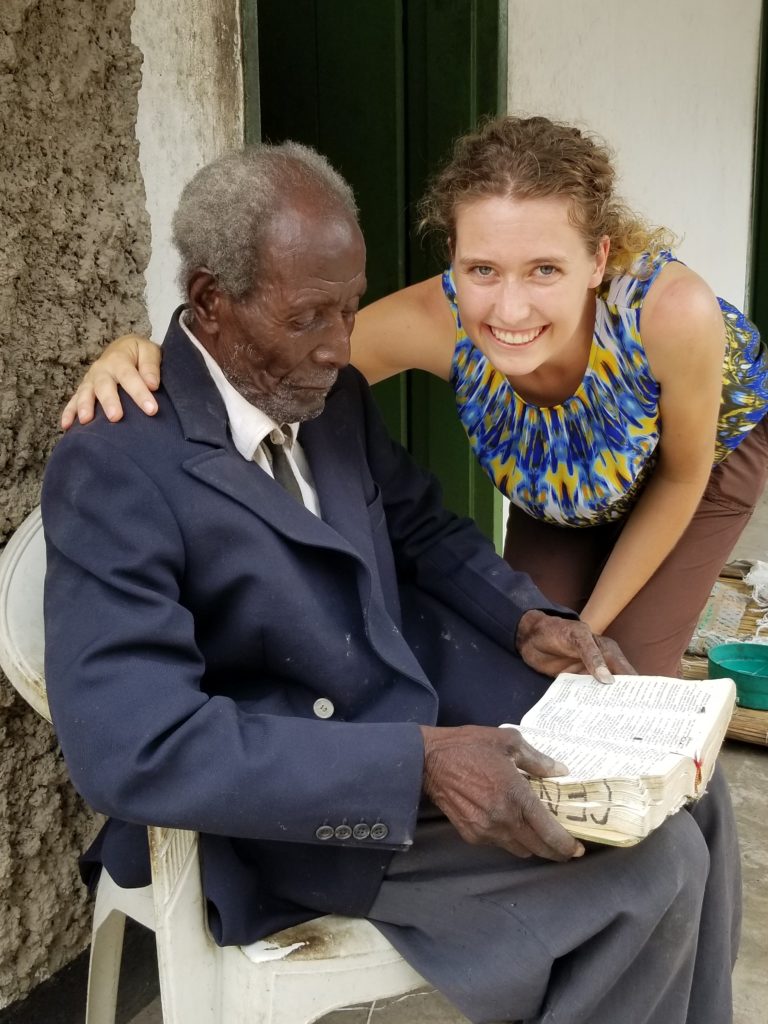Rose Paneno: Where Is She Now?

We are excited to share an update about former international volunteer, Rose Paneno. She served as a public health specialist in Mwandi, Zambia. Rose shared her stories and reflections during her time in the field and today we take a look at life since she came home.
The questions and answers below are a part of a series – Where Are They Now?
Her CMMB Experience
Working with CMMB has helped me learn how to be an advocate for vulnerable communities.
Where did you volunteer and what was your role?
I volunteered in Mwandi, Zambia and worked as a public health specialist in water and sanitation. I also worked closely with the maternal and child health teams, also known as the SMAGS (safe motherhood action groups) and nutrition groups.

Rose with baby Rebecca and her mom. Baby Patrick was delivered by Patrick Chansa, an in-charge nurse in Mwandi, Zambia. About him, Rose wrote a beautiful piece about how Patrick’s hard work saved baby Rebecca’s life.
We know that you have many stories from your experience at CMMB. Is there one that stands out the most?
I have many stories that I love to tell about Mwandi, each one filled with the vibrancy and ingenuity of the communities in which I had the privilege to work. One of my favorite stories comes from the rainy season. One of our volunteers, Sebastian, who lives in a small village in the Situlu area, had effectively mobilized his community to build latrines.
Over the course of the proceeding dry season, every single household in his community built a latrine. Then the rains came. It was devastating. The unusually heavy rains that year caused every single latrine in the village to collapse, as heavily wader-laden sand did not hold the shape of the latrine pit. Walking around the village with the Water, Sanitation, and Hygiene team (WASH) and witnessing these crumpled heaps where the villagers had once taken so much pride in their giant strides towards safe waste management was heartbreaking.
Afterwards, I sat down with my team to decide how to proceed. Everyone expressed their regret that this had occurred, but then something amazing happened. Instead of despairing, the team began to organize themselves. They spoke about how their villages now knew the importance of latrines and would be more willing to rebuild them, something that was challenging at the start of the project. I was able to help the team by telling them about an innovation that had been used in other villages: using tree-bark baskets to reinforce the latrine pits, which would help them withstand the flooding.
Everyone agreed that while this was more time consuming and more expensive, it would be worthwhile to try. The resilience of this team and their villagers was captured by their ferocious pursuit of the best sanitation possible. Their pride in using local resources to rebuild was contagious, and I was struck by the fact that each team member didn’t hesitate or question if their neighbors would rebuild — they knew the team’s education and passion would push their villages once more towards the goal of being “Open Defecation Free.”
What is your biggest learning from your experience and how has it impacted your professional career?
Working with CMMB has helped me learn how to be an advocate for vulnerable communities. I was privileged to learn from the villages and teams that welcomed me into their communities and homes, people who fed me food from their tables, and engaged in conversation about hygiene. I learned how to navigate difficult bureaucratic situations and be relentless in my pursuit of delivering the tools to assist these adaptive teams in their work. Importantly for my future career, I learned how to assess situations and compensate for limited resources.
How has your experience changed you personally? How does it reveal itself in the way you live your life?
One of the changes I have noticed in myself, which I have reflected on deeply, is the importance of gratitude in my life. Working in Zambia exposed me to all levels of society and resources and as an outsider, it was easier for me to examine myself and reflect on the ways that I have been blessed. Framing my life in terms of gratitude helps me to overcome difficult situations. It allows me to look at the tools that I have access to, including my resilience, education, supportive family and friends — to name a few.
Too often, I feel that while at home I am overwhelmed with the media’s suggestions that I don’t have enough — that I need something in order to be successful, beautiful, happy, strong, good enough etc. However, this is a lie that I have since learned to reject.
From observing my dear friends at the Kandiana Mwandi Elderly Home care for the elders, and by working with my hands alongside the incredible community health volunteers, I was able to get closer to the root of what makes me who I am.
Now that I am home, I cling to that realization. By waking up every day with a sense of gratitude for the experiences I have had, I am better equipped to utilize my resources not just for my own good, but for that of my local and global community.

Here Rose is pictured with a community member served at the Mwandi Mission Hospital and a short-term volunteer visiting on a mission trip.
Where Is Rose Now?
Where are you now and what are you doing?
Good Question! I’ve been incredibly busy this past year. Since I returned home I have been applying and interviewing for medical school. I am very excited to announce that I will be going to UCLA David Geffen School of Medicine in August! This school has an amazing commitment to delivering healthcare to underserved populations, and has a robust global and public health program. I look forward to feeding my passions and learning all that I can.
What do you hope to do in your future?
Life is always full of surprises for me, and I’d hate to shoe box any of them! But I will become a physician and I hope someday to practice in a rural community like Mwandi, while continuing to facilitate conversations on public health innovations that would benefit our most vulnerable communities.
